- China will adopt a zero-tolerance policy for separatist activities;
- The “microchip” factor directly influences the geopolitical dispute between the US and China in Taiwan;
- The Russian invasion of Ukraine is motivating Taiwan to secure security measures and strategies against China.
Russia’s invasion of Ukraine in early 2022 triggered several geopolitical problems. The conflict was and is responsible for impacting not only the European region, but the entire world.
An example of this impact is the increase in insecurity that Taiwan began to experience in relation to China, during Putin’s war.
China and Taiwan are constantly on the brink of potential military escalation, and as it looks at the conflict on Ukrainian soil, Taiwan fears its future is similar to Kiev’s.
This conflict exists because Beijing considers the island of Taiwan to be an inseparable part of its territory even though Taipei does not agree, and the Chinese Communist Party has never ruled the territory, but the two nations have never come to blows.
But if Russia succeeds in its invasion of Ukraine, China may be motivated to try the same fate with Taiwan.

How the War in Ukraine Is Affecting China’s Calculations Regarding a Possible Invasion of Taiwan
According to the director of the Central Intelligence Agency (CIA) of the United States, William Burns, China is closely watching everything that is happening in the Russia-Ukraine conflict.
He says the Chinese government is impressed by Ukraine’s fierce resistance and also by Russia’s ability to bear such an economic cost to the country.
Therefore, he believes that China is carefully recalculating its plans to take control of the island.
However, China has made it clear that it will adopt a zero-tolerance policy for “separatist activities” in Taiwan and has said that if necessary, it will retake the island by force, according to a white paper published by the Taiwan Affairs Office of the Council of Chinese state.
The Chinese government’s reprimand came after several days of Chinese “military exercises” around the island, organized due to US House Speaker Nancy Pelosi’s visit to Taipei in August 2022.
What Taiwan is learning from Russia’s war on Ukraine
Moscow’s invasion of Kiev created an inevitable parallel with a possible Beijing invasion of Taipei from the start. However, the strong Ukrainian resistance is teaching some lessons for both.
Joseph Wu, Taiwan’s foreign minister, speaking to CNN’s Fareed Zakaria, said, “We try to see what we can learn from Ukraine in defending ourselves.” He expresses his admiration for Ukrainian civilians who are willing to go to war zones and defend their country.
Taking Ukraine as an example, Taiwan’s Total Defense Mobilization Agency, part of the Ministry of National Defense (MND), issued a “war survival guide” that illustrated different responses to a potential security crisis, such as finding shelter from bombs, how to get food and water through smartphones, and how to prepare first-aid kits.
In addition, Wu said that for many years Taiwan has invested in asymmetric defenses, whether anti-ship cruise missiles, sea mines or surface-to-air missiles.
Later that year, Taiwan Defense Minister Chiu Kuo-cheng also proposed extending reservist military conscription from four months to one year. The proposal has proved popular and, for the first time, a senior lawmaker from Tsai’s party is calling for women to be recruited as well.
Taiwan, therefore, is aware that it may not obtain direct support from countries such as the United States, the members of the European Union, Japan, and other liberal democracies by sending soldiers from these countries, for example.
However, the island knows that help can come indirectly, through weapons, ammunition and intelligence, in addition to basic supplies such as food and uniforms.
Furthermore, in the event that a Chinese invasion of Taiwan takes place, certainly the largest liberal-democratic world economies will apply economic sanctions against China, with the aim of containing it.
US strategic ambiguity in the US-China-Taiwan triangle
The strategic ambiguity of the United States consists in not taking an objective side in the conflict between China and Taiwan.
A telephone survey by the Taiwanese Public Opinion Foundation, a private think tank in Taiwan, revealed that 53.8% of respondents said they did not believe in a US intervention in defense of Taiwan in 2022.
It was suggested that the US resistance to directly assisting Ukraine against Russia would be causing a feeling of distrust towards Washington, unlike the previous year, when distrust was approximately 28%, despite the 40 billion dollars that Washington offered to the country through the Lend-Lease Program, help that is considered indirect, but fundamental to the Ukrainian defense.
However, during Pelosi’s visit to Taipei and despite threats from China, which from the beginning opposed the visit to the territory disputed by Beijing, the Speaker of the House of Representatives declared that “the US will not abandon Taiwan“.
The importance of Taiwanese microchips to the United States
The “microchip” factor directly influences the geopolitical dispute between the US and China.
Taiwanese company Semiconductor Manufacturing Co. (TSMC) owns about 53% of the world’s semiconductor supply, making it the island’s biggest asset and security.
For the United States, the production and distribution of semiconductors is a matter of national security since several sectors of its economy depend on this product, despite its efforts to reduce this dependence.
On the other hand, China sees a great opportunity to become the hegemonic nation of Asia and perhaps the largest economy in the world, which could even affect US national security.
Therefore, there is great American interest in maintaining its commitment to the defense of Tawian, since in addition to depending on the supply of chips produced on the island, the interest in preventing Chinese growth is one of its priorities.
Due to this strategic importance for US national security, it can intervene directly in the conflict.
Future trends in China-Taiwan tension as the war in Ukraine ends
The Russian invasion of Ukraine is clearly motivating Taiwan to secure security measures and strategies against China.
Certainly, the comparison between Taiwan and Ukraine is imperfect, as many of the problems that Taipei seeks to assuage do not exist in Kiev. Such as, for example, the deficiency in reservist training and even the low number of enlistments in the armed forces compared to Beijing.
It is important to point out that Taiwan is an island, which considerably increases the difficulty of a possible Chinese invasion, since an amphibious invasion is a difficult and costly military operation launched from the sea by a naval force involving the landing on a hostile beach, fact that consequently refers to the difficulty of Nazi Germany in invading the United Kingdom in World War II.
Despite these challenges, Minister Wu said Taiwan will continue to observe and consider the implications of Ukraine’s successful resistance to Russia. And that learning will be something China will have to worry about.
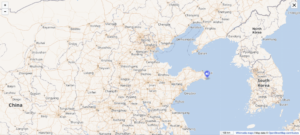

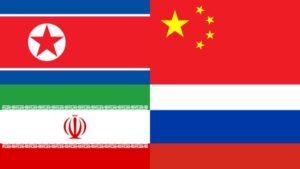
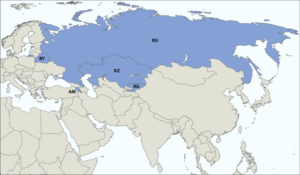


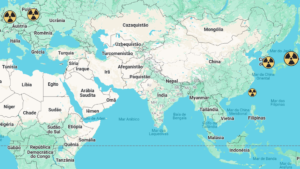

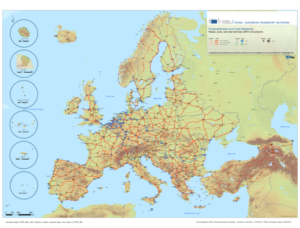
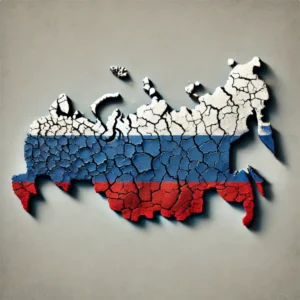
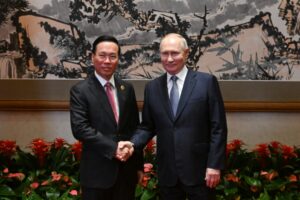

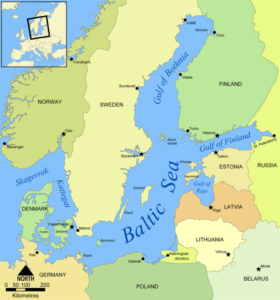

[…] Liberal Order against autocracies, the West (or more specifically the U.S. and the E.U.) know that what happens in Ukraine will determine what happens to Taiwan in the near future. A weak American/European Union response against Russia would show China that […]
[…] Liberal Global contra autocracias, o Ocidente (ou mais especificamente os EUA e a UE) sabe que os acontecimentos na Ucrânia determinarão o que acontecerá com Taiwan em um futuro próximo. Uma resposta fraca dos EUA/União Europeia contra a Rússia mostraria à […]
[…] addition, China is keeping an eye on what happens in Ukraine. If the West continues its strong support for Kiev and it defeats Russia, it will likely discourage […]
[…] Therefore, since the Russian invasion of Kiev, there has been uncertainty and the Chinese threat to the island, and it is believed that if Russia achieves its objectives in Ukraine, China may be motivated to try the same in Taiwan. […]
[…] to political issues, it is possible to consider, after some highlights of the document, that in a possible attack on Taiwan by China to change the status quo, the United States would provide military support to the […]